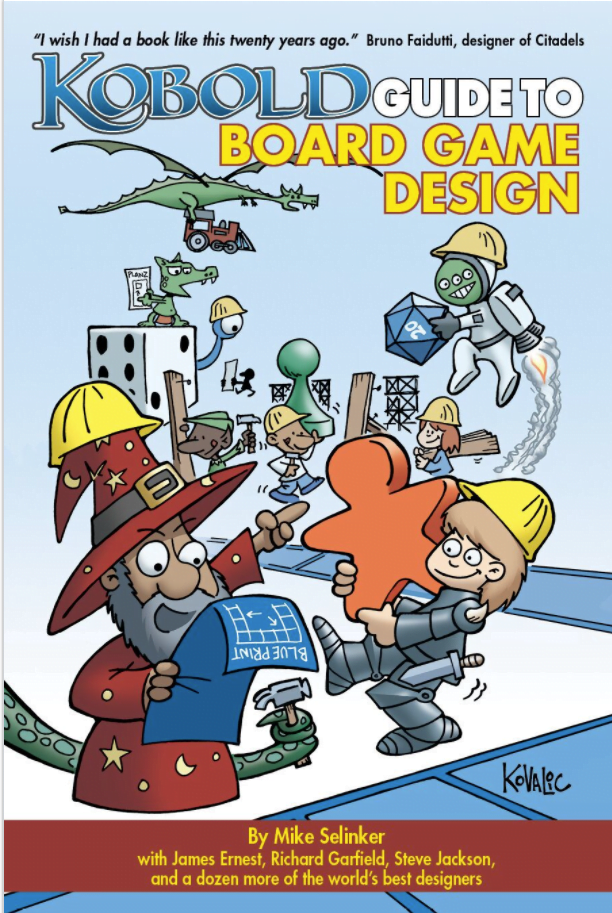I had a lot of successes with Reiver Games and I'm proud of what I achieved, but the errors outweighed the successes over time and they came to define the company and eventually kill it. According to Carol Dweck, how you respond to failures is a key part of your mindset - some people treat failures as judgements on their abilities, others as lessons from which they can learn. I like to think I'm in the second camp, but you never know.
So what went wrong with Reiver Games? It was all going well while I ran the company as a hobby, hand-making games, it wasn't until I made the leap to professional publisher that things started to come off the rails. I can think of five major mistakes that I really don't want to repeat:
- Jumped to professional too soon
- Artwork is critical to retail success
- Carpe Astra rushed out
- Taking a bank loan
- Losing momentum/motivation
Jumped to professional too soon
When my Multiple Sclerosis diagnosis led to my life insurance paying out I had a choice to make, keep working in full-time employment, running Reiver Games as a hobby in my spare time or invest heavily in Reiver Games and go pro. I chose the latter, far too soon. I had maybe ten true fans, and a whole heap of people who had heard of Reiver Games - enough to be able to sell 300 hand-made games within a year, but not enough to sell 3,000 games through retail channels. I should have waited until I had more experience and a better market presence. This time round I have no plans to go pro - I've a family to support now, I can't afford to go without a salary or take a big pay cut.Artwork is critical to retail success
When you're making games by hand and selling them at conventions and games clubs you've a lot on your side - you're selling the games, and people like to support the little guy or the designer of a game who's excitement about their project is so palpable. When you're selling through retail channels no-one is selling your game. The store will stock it (if you're lucky!), but it will just sit on the shelf amongst hundreds or thousands of others - the staff won't know how to play and won't be pushing your game over any other game. So your game has to sell itself, whether through hype, word of mouth or shelf presence. A beautiful box will really help here, as it will draw people in to learn more. With both It's Alive! and Carpe Astra I got a friend to do the art, and he did me a great deal, so it was very cheap. But he didn't have board game art experience. I loved the art of It's Alive!, but the box was weak, so the second edition had a new box, which was weak in a different way. The art for Carpe Astra was also weak - especially the box. But when it's a mate doing it dead cheap it's very hard to ask him to redo it, especially when you can't clearly articulate what's wrong with it. This time round I'm not aiming at retail, so I can side-step a lot of this, and I'll be mostly selling the game face-to-face with people who have played it, which makes the box art less critical to its success.Carpe Astra rushed out
If you want to make a living selling board games through retail channels you need to sell a lot of games. Let's say you want to earn £30K. The usual pricing for retail is that you sell to distributors at 40% of retail and aim to get it manufactured at 20% of retail. So your profit is 20% of retail (if you sell them all!). It's Alive! retailed at £15, so my profit should have been £3 per copy (I overspent, it was nearer £1.50). If It's Alive! was the only game I made I would need to sell 10,000 of them every year. That's excluding money for warehousing, attending conventions and advertising. One way to make things easier is have multiple games, that way you can do several smaller runs, and it makes it easier for shops or distributors to place an order with you. To try to get to this point I rushed Carpe Astra out. It had some nice ideas, but it wasn't ready for prime time, and as a result I was left with a lot of games that I couldn't shift. I should have had the balls to delay its release until I though it was ready, rather than rush to be a 'multi-game' publisher. This time round I'm not trying to go pro, so I'm very happy to only have one game on the books at a time, or even none if I've not got the next one ready to go.Taking a bank loan
A couple of things went wrong with the launch of Carpe Astra, as well as rushing the game out before it was ready, I'd hit several delays when trying to get It's Alive! to market. I'd taken the £4,250 I'd made on the hand-made games and invested £12K of life insurance to fund the £13,500 cost of It's Alive! It's Alive! was months late, so when I wanted to launch Carpe Astra (too early!) I'd not recouped enough of the It's Alive! investment to fund the £10K cost of getting Carpe Astra manufactured. I could have waited, building up funds and giving myself more time to improve the game, but instead I went to the bank and got a loan. For the next three years I would be paying the bank £330 a month. In a good month I'd bring in a lot more than than, but in a bad one I'd bring in a lot less. So my cash on hand slowly dwindled and eventually I ran out. This time round I'm going to be very careful about recurring monthly expenses. At the moment it's just the bank account fees, that don't start for 18 months...Losing motivation/momentum
It's easy to be excited and motivated when everything is going well, less so when sales are slowly tricking in and your bank loan and warehousing costs are draining your bank account before your very eyes. How you perform under those circumstances says a lot about your character and your likelihood of success. I'm sad to say that I lost faith and gave up - I was spending my days largely watching television on one, then two, then six hour 'lunch breaks', supposedly researching game ideas based on my favourite TV shows. I was pretty pathetic and had I manned up and hustled at that point it might have still been possible to turn things around. I didn't and I paid the price. Reiver Games went under. This time round I hope I'm a better man, I've seen what that leads to and know the warning signs to watch out for. The reduced pressure from not trying to make it a salary paying job will also make it less demoralising if things don't go to plan.I really don't want to make same mistakes again. This time round I'm taking some things from my day job to help me keep on top of things. I'm adopting a process of continuous improvement and taking regular checkpoints when I ask myself what's going well, badly and what I should start doing that I'm currently not. This step back will hopefully let me spot problems before they become too entrenched and fix them, leading to more success than last time...






